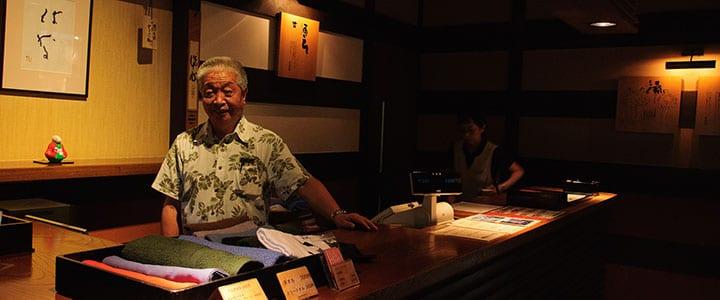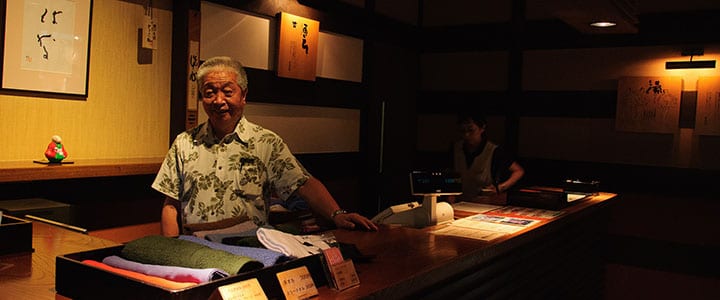When you’re studying a foreign language, it’s helpful to also learn about culture, history, and traditions. Here, Japanese teacher Taro T. introduces the Japanese concept omotenashi…
As someone who learned English as a second language, I truly believe in the importance of finding something positive from a new culture, and adopting it in your own life. This doesn’t just help you learn a new language, but it will also help you grow as an individual.
Courtesy for Others
Omotenashi is a rich, beautiful aspect of Japanese culture. Omotenashi is all about grace and courtesy towards others, the literal translation is to entertain guests wholeheartedly. It is a service spirit that is deeply ingrained in the Japanese culture.
When you travel to Kyoto and stay at a traditional Japanese hotel (ryokan), you’ll be treated like a VIP guest. You will have all the accommodations you need, before you even ask the hosts. This is a perfect example of omotenashi.
You may assume that when it comes to omotenashi, people would speak in the polite Japanese keigo (honorific Japanese speech), but one doesn’t have to speak formally in order to serve their guests.
You can witness omotenashi in Japanese restaurants, hotels, business, and households. Despite the lack of formality, there are certain rules guests are expected to follow.
Being a guest in Japan means you’re supposed to accept services from your hosts. While it might feel uncomfortable at first to be treated so nicely with meticulous attention to your needs, it’s considered respectful to accept this service, and enjoy your time.
The Wall Street Journal reported on the customer service in Japan, and how the country has perfected the hospitality industry. This service spirit is something Japan should be proud of, and it’s also beneficial for you to adopt this spirit in your own life, especially as a Japanese-language student.
Omotenashi might be a difficult word to remember, but it’s essentially all about thinking from another person’s point of view. You can learn about the Western take on this concept from the popular book “The Seven Habits of Highly Effective People” by Stephen Covey, or “How to Win Friends and Influence People” by Dale Carnegie.
Practice Omotenashi in Your Own Life
The idea of omotenashi is not strictly unique to Japan, as it comes simply from your care for others. This consideration could have a lasting impact on someone’s life.
When I first came to the United States at 16, it was very difficult for me to adjust to a new country. I didn’t understand English very well, and every day was a struggle.
During this difficult time, I had a friend whose family would invite me to their house. I was welcome there anytime, and they treated me like I was part of the family. Without their kindness, I don’t think I would have been able to push through that time, or even come back to the U.S. for undergraduate and graduate studies. Their hospitality is what got me through that time in my life.
I believe that everyone can appreciate and learn a lot from omotenashi. People often overlook the importance of thinking of others. By treating others well, you will feel great about yourself, which goes far beyond learning Japanese.
Adopting omotenashi will keep you motivated to learn Japanese, and it will also boost your happiness and well-being.
So next time you’re out with friends or hosting guests, I suggest you practice omotenashi. If you plan to visit Japan one day, you’ll already be a step ahead if you know about omotenashi.
Want to learn more about Japanese culture and language? Find a Japanese tutor today!
 Post Author: Taro T.
Post Author: Taro T.Taro T. teaches Japanese and ESL in Washington, D.C. He is a language acquisition specialist and mentors students from the United States, Thailand, Italy, Korea, Turkey, and El Salvador. Born and raised in Japan, Taro came to the United States when he was 16 to learn English and American culture. He gained fluency in both English and Spanish. Learn more about Taro here!
Photo by Franek N
Maile Proctor

